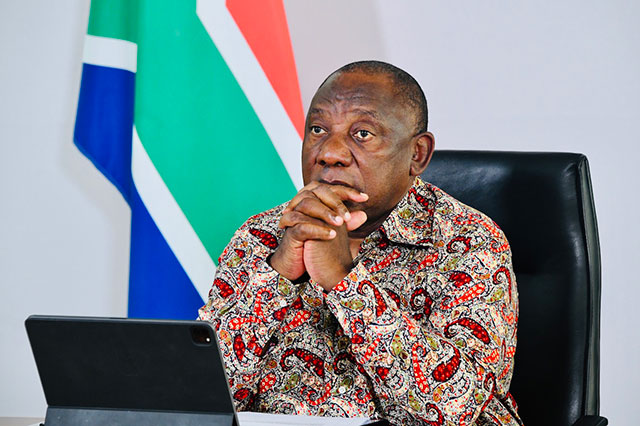Pretoria – President Cyril Ramaphosa says South Africa’s economic reform programme is yielding results, with steady progress being made to unlock growth, boost job creation and modernise infrastructure across key sectors.
In his weekly newsletter on Monday, Ramaphosa gave an update on Operation Vulindlela, a government-wide initiative launched under the Sixth Administration to fast-track structural economic reforms.
The latest progress report, released last week, highlights achievements in energy, logistics, telecommunications, visas, and local government, which the president says are helping to address long-standing constraints on growth.
“This report shows that the economic reform programme is making steady progress, opening the way to more rapid, inclusive and sustainable growth and job creation,” Ramaphosa said.
Among the milestones, the president cited a reduction in load shedding as a direct result of reforms aimed at unlocking private sector investment in electricity generation. He also noted that changes in the telecommunications sector have led to lower mobile data costs.
Even as the world faces difficult economic headwinds, our economic reform agenda will create the conditions for higher growth and investment, while renewing our infrastructure for generations to come.
🔗 https://t.co/qM4T4j5OsZ pic.twitter.com/GdFRqCMZOV
— Cyril Ramaphosa 🇿🇦 (@CyrilRamaphosa) July 21, 2025
South Africa is now moving toward the creation of a competitive electricity market, which Ramaphosa says will “introduce greater choice for consumers and drive down costs.” An independent Transmission System Operator is set to be established within five years as part of the ongoing reforms to the electricity sector.
On freight logistics, the president confirmed that a Rail Infrastructure Manager was established in April as a separate division of Transnet. It has already received 98 access requests from private train operators, signalling the start of open competition in the freight rail sector. Plans are also under way to attract private investment into ports and rail infrastructure, with support from a newly created Private Sector Participation Unit housed in the Development Bank of Southern Africa.
Regarding visa reform, the Department of Home Affairs is preparing to launch an Electronic Travel Authorisation system in September 2025, which is expected to streamline travel and attract more skilled professionals and tourists.
Phase II of Operation Vulindlela, launched in April, includes reforms at local government level. Several major municipalities have submitted turnaround plans for their water and electricity utilities, which will allow them to access performance-based incentives from National Treasury.
“These reforms will preserve public ownership of key infrastructure while introducing greater competition, dynamism and investment,” Ramaphosa said, responding to criticism from some opposition parties who have labelled the reforms as veiled privatisation.
The president dismissed such claims as “baseless and misguided,” arguing that similar reforms in peer countries have helped stimulate economic growth.
Despite ongoing global economic challenges, Ramaphosa remains confident that the reforms will “create the conditions for higher growth and investment” while laying the groundwork for a more modern and resilient economy.
Follow African Insider on Facebook, X and Instagram
Picture: X/@PresidencyZA
For more African news, visit Africaninsider.com
Compiled by Betha Madhomu



